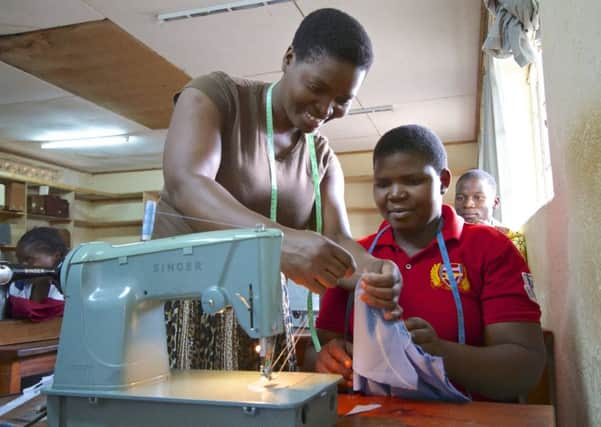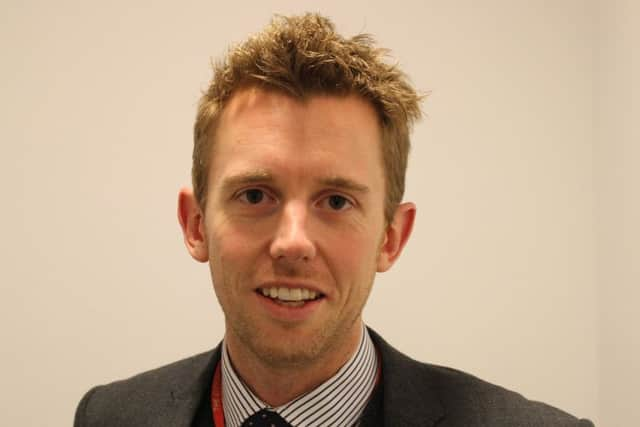Scottish internationalism: Why aid matters


International development became somewhat of a totemic issue, as political parties considered whether to position themselves with those who wanted to turn inwards and renege on international commitments. There were voices clamouring for the 0.7 per cent commitment to be scrapped. ‘We spend too much’, ‘money is squandered’, ‘charity starts at home’, they shouted.
Too often the arguments, both for and against aid, are made on an emotional basis. It’s important to look at each of these three claims.
Advertisement
Hide AdAdvertisement
Hide AdDo we spend too much? Well, the average wage in Scotland is about £26,000 – just over £400 a week after tax. Of this, 0.7 per cent is about £2.80 a week: just enough for a cup of coffee. The idea that this is too great a price to bear, that spending 99.3 per cent of our national income on ourselves is not enough, isn’t really credible.


Do we waste money? After a year of scrutinising the UK Government’s allocation of resources, the International Development Select Committee found no evidence that there was any more waste in DFID than any other department. The cross-party committee concluded that the 0.7 per cent target did not result in poor or wasteful spending, as is incorrectly portrayed in some sections of the media, but rather found impressive value for money and considerable impact. Put simply, they found that aid works, and that the target sets a tangible standard for others to follow.
Should charity start at home? Perhaps, but it shouldn’t end there. The Charities Aid Foundation estimates that domestic causes receive around 84 per cent of UK charitable giving, and 99.3 per cent of taxpayers’ funds are spent on predominantly domestic issues. Yes, there is poverty in the UK; far more than there should be. It’s probably right that the majority of UK funds, both governmental and charitable, focus on addressing these issues. But the idea that our domestic problems are so great that we can contribute nothing to international causes just doesn’t stack up.
I am deeply proud that it now looks likely that each of the five major parties competing in Scotland in the June election will back the 0.7 per cent aid commitment.
Ruth Davidson, the leader of the Scottish Conservatives, was quick to outline her case for keeping the aid commitment, even when the Prime Minister seemed publicly ambivalent. Similarly, each of the other four leaders of the largest Scottish parties have variously made their own commitments to international development, and this is to be applauded.


This cross-party consensus reflects the fact that most Scots are rightly proud of Scotland’s distinctive sense of internationalism. We are an outward-looking nation with a strong tradition for good global citizenship.
Scotland has advanced a model of international development driven by dignified partnership and active civic involvement. This is helping to transform lives in Scotland and across the world. There continues to be a constructive synergy between government and civic society, with successive Scottish governments making strong commitments to development assistance, and to actively engaging civic society in doing so.
Our nation-to-nation friendship with Malawi, stretching back more than 150 years to Dr David Livingstone, is part of this distinctive Scottish internationalism. It’s not a relationship defined by donors and recipients but rather a dignified, two-way partnership of friends and equals. It unleashes endless enthusiasm and energy on both sides, as churches, schools, hospitals, businesses, universities, local authorities, and even our governments and parliaments, stand together in friendship and solidarity.
Advertisement
Hide AdAdvertisement
Hide AdThree days after she announced the election, the Prime Minister followed Scotland’s lead and confirmed that her party would honour the UK’s commitment. The risk of the UK turning in on itself has seemingly subsided, for now. But we should never stop making the case for progressive internationalism, challenging prejudice, headlines and assumptions, and applauding politicians when they make the right call.
David Hope-Jones is chief executive, Scotland Malawi Partnership.